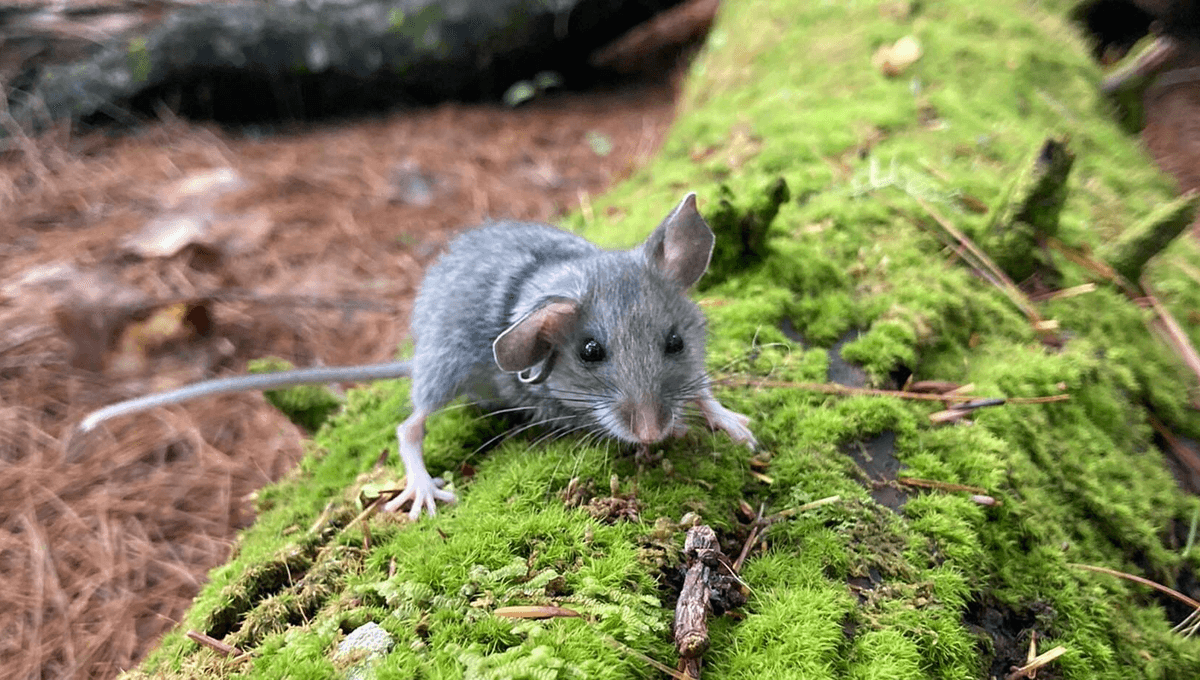
Healthy ecosystems are known to require diversity, but a study from the forests of Maine reveals there’s an aspect of this ecologists have been overlooking: the personality of pollinators and seed dispersers. If the work proves applicable to other environments, it suggests that the richness and sustainability of the planet depends on having some animals that are brave and outgoing, and some that are more cautious. Sometimes this may be supplied by different species, but having a range of approaches among the same animal can work as well.
The old saying; “It takes all types to make the world” has received scientific verification. It’s not just a truism that the world we see reflects the range of personalities that exist, but also that the vibrancy and health of the planet depend on that variation. All this has been revealed by hiding pine seeds in caches in Penobscot Experimental Forest (PEF) for cute little critters to find.
As the name suggests, the PEF is preserved by the US Forest Service and the University of Maine for researchers to study, including exploring the consequences of interventions, not just pure observation. Graduate student Brigit Humphreys has been hiding caches of eastern white pine seeds to provide opportunities for so-called “pilferers”.
“The point of the project was to figure out how small mammal personality and animal personality in general influence different ecological processes,” Humphreys said in a statement. “We’re focused on small mammals because they’re a great study system. They’re abundant, we get a really good sample size and we can actually conduct experiments on them in the forest.”
In the short-term animals depend on trees and fungi for food, but in the longer run the relationship is symbiotic. Without animals to disperse their seeds or spores, most stationary organisms can’t colonize new territory, including taking back areas damaged by storms, fire, or human activity. There’s a reason so many fruits, nuts, and mushrooms tasted so good even before humans started selectively breeding them.
Although the importance of seed dispersal for healthy forests is well understood – and one of the reasons to fear the decline of large frugivores like elephants and lemurs – Humphreys notes work has concentrated on the species, not the individual.
Seeking to change this, researchers trapped 3,311 squirrels, chipmunks, voles, shrews, and species of mice in six patches of the PEF and gave them personality tests. Not the small fluffy equivalent of Myers-Briggs, but tests with some actual science behind them, such as the tendency to explore new territory.
They then replaced the traps in an area with cameras and equipment to recognize the tags they had attached to their temporary captives.
The cameras revealed deer mice should be your first pick if you’re putting together a pine seed cache raiding party, but that variation in personality within some species is at least as important. Every animal has to trade off the chance of finding food against the danger of getting eaten by a predator, and they don’t all find the same balance. Those with more exploratory personalities were more likely to find the caches, but so were those who were thinner for lack of food.
Although pilferers eat some of the seeds on the spot, they move and rebury others, usually taking them further from the parental tree and playing an important role in increasing seed dispersal. The recacher may die or forget the location, giving the seeds an opportunity to germinate. Undernourished cache-finders may be less use to the ecosystem, as they’re more likely to eat their discovery straight away, rather than rehide it.
Hiding your cache from other furry thieves is a hard task in the forests of Maine – 83.5 percent of the caches the team buried were pilfered within six nights.
Sometimes the same seed is recached several times by different creatures, achieving dispersal over a far wider range than would occur if every animal stuck to finding its own. Pilferage is so common that animals will look for less trafficked spots to store their seeds where others will not find them.
Consequently, enthusiastic pilferers enhance seed dispersal not just through their own efforts, but by making others go further afield to try to stop them. If predators catch all the bolder pilferers, it can diminish this pressure and lead to a more uniform and less resilient forest.
“The take-home message of all the research we are doing is that individuals are important,” Humphreys said. “There’s a big push in the science community to conserve biodiversity, but beyond biodiversity, we have to be conserving behavioral diversity within a species if we truly want to have fully functional ecosystems.”
Some may wish to extrapolate the conclusion to humans, arguing we need a variety of approaches to create a society that resembles a stable ecosystem, not a vulnerable monoculture – something schools and other institutions may need occasionally reminding of.
The study is published open access in the Journal of Animal Ecology
Source Link: Forest Health Depends On The Personality Of Small Mammals